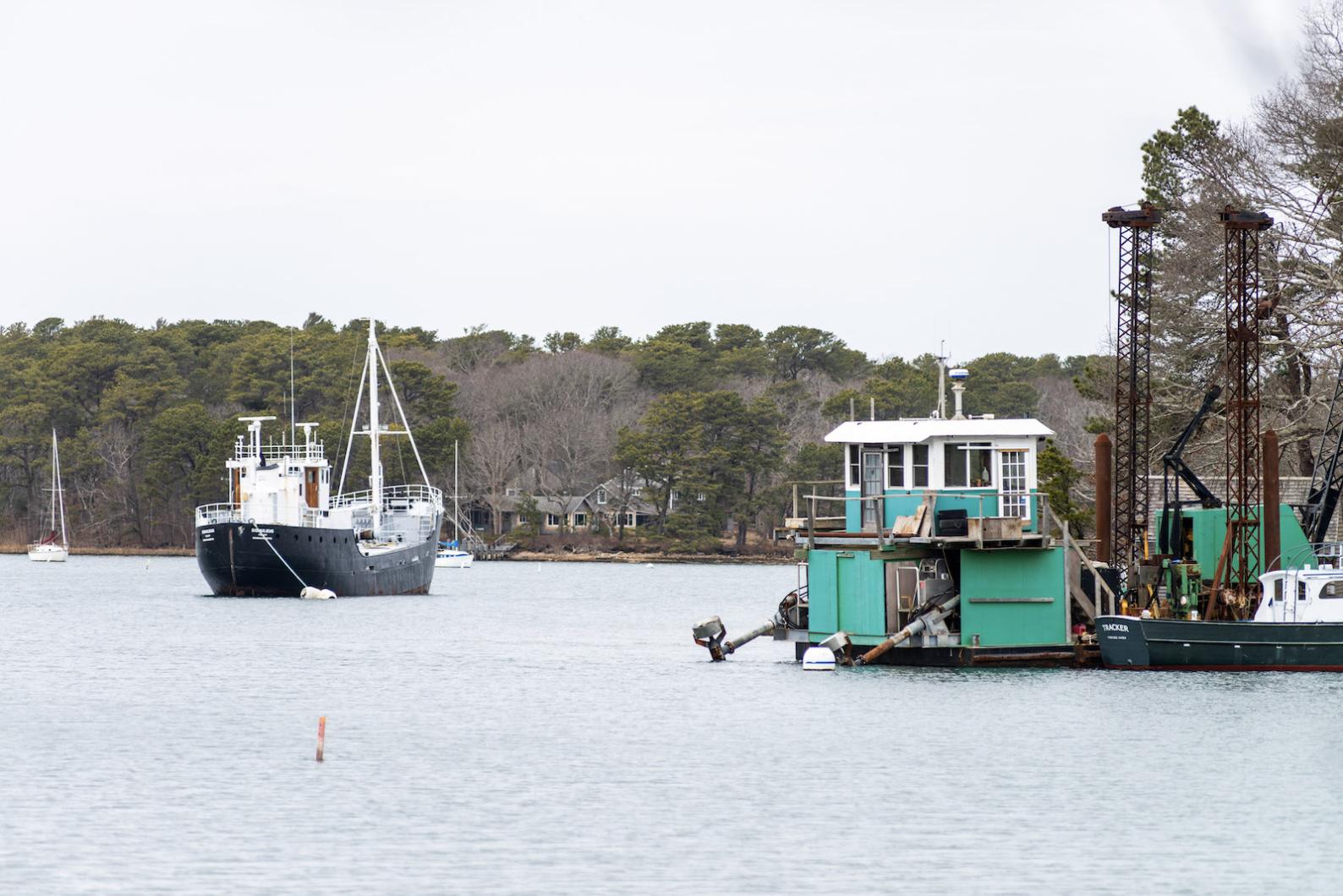The Tisbury select board voted unanimously Wednesday to impose an immediate moratorium on anchoring in Lake Tashmoo until the town has developed a policy to reduce the number of visiting boats.
The temporary ban was proposed last month by town officials concerned about the health of the estuary.
“I see it as a quality of life issue and an environmental issue,” board member John Cahill said at Wednesday’s meeting.
Opponents of the open-ended ban included Matt Hobart, who chairs the waterways committee that endorsed the moratorium but spoke on his own account Wednesday.
“[It’s] six to eight weekends a year … a very small window of time,” Mr. Hobart said of the busy summer season when off-Island vessels crowd the estuary.
To protect eelgrass, the bottom-growing plant that nourishes marine life, anchoring in Lake Tashmoo has been limited since late 2016 to two designated areas where an earlier survey had found little to no eelgrass.
But a more recent survey by the Massachusetts Department of Marine Fisheries used advanced technology to draw a different conclusion, harbormaster John Crocker said Wednesday.
“They found eelgrass, not everywhere, but practically everywhere,” said Mr. Crocker, who noted that it’s not unusual to see 90 visiting vessels in one anchoring area.
“Do we still not want to anchor in eelgrass? I think the answer to that question is yes,” he said.
To allow some continued access for visiting boaters, Mr. Crocker proposed the town provide six mooring posts that could each accommodate up to three vessels rafted together.
“[The pilings] don’t have to be all clustered in one place. I think it makes sense to spread them out,” Mr. Crocker said.
“We are still restricting the amount of boats .. but we are still allowing some,” he added.
The board also had concerns about high nitrogen levels harming eelgrass. Lake Tashmoo does not have a pump-out station or vessel for human waste from boats.
“If your boat doesn’t have a sealed head [toilet], then there’s only one place that you’re going to urinate and that’s into Tashmoo,” select board chair Roy Cutrer said. “Urine is nitrogen … To have that large body of boats in the summer, I think is a mistake on our part.”
A third source of discontent was the impact of summer boating revelry on homeowners along Lake Tashmoo’s shores, many of whom have complained of being disturbed by noise and crowded out of their own sailing and swimming activities.
MacAleer Schilcher, a longtime sailor on the estuary and newly-declared candidate for select board, said an outright ban was going too far.
“If you want some relief to the homeowners, ban anchoring on weekends,” said Mr. Schilcher, who also submitted 20 pages of testimony.
Mr. Schilcher and fellow boater Lynne Fraker both pushed the select board to appoint a committee to recommend new rules for visiting vessels, but town administrator Jay Grande said he would work with Mr. Crocker, the waterways committee and the water resources committee to develop a policy.
“Nothing’s going to happen,” a dejected Ms. Fraker said, after the meeting adjourned.
Among other business Wednesday, the select board voted to increase the size of the water resource committee from five to seven members, appointing Sheri Caseau, John Best and Gerard Hokanson to fill the two new seats and an existing vacancy.
The board also approved the warrants for Tisbury’s special and annual town meetings April 25, and will meet March 29 to sign the warrants.







Comments (9)
Comments
Comment policy »